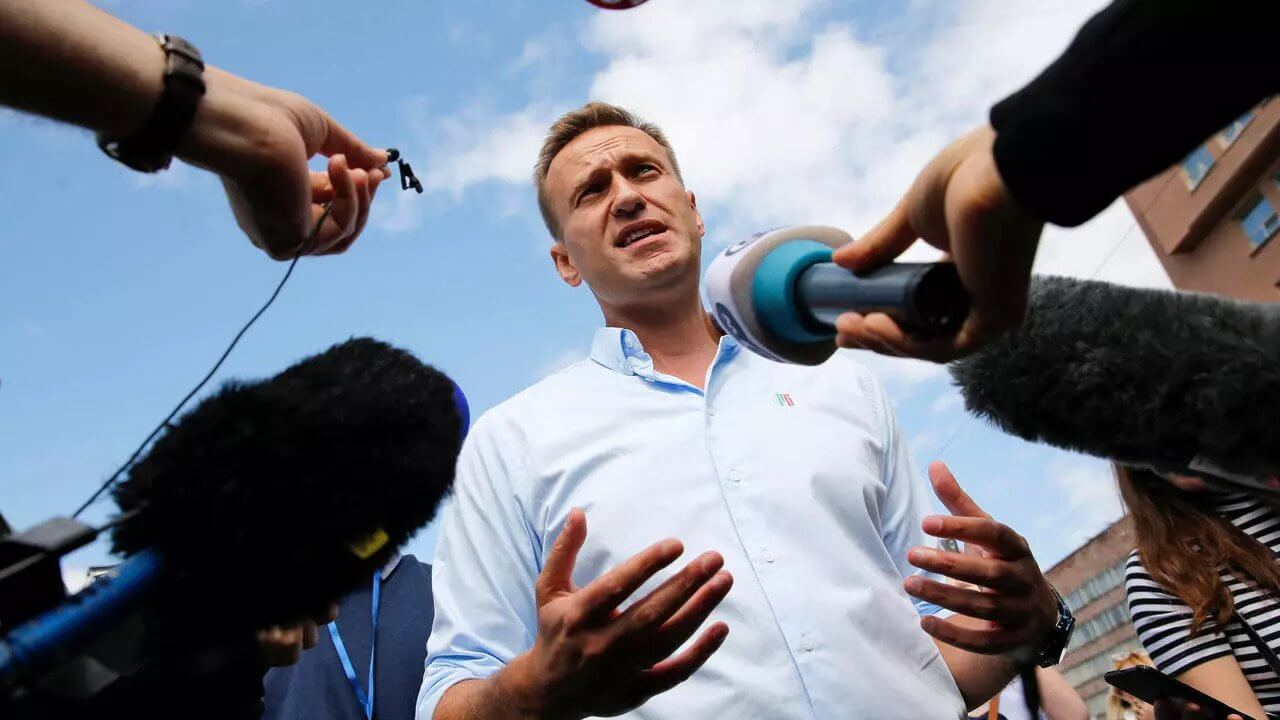Russian opposition leader Alexei Navalny is fighting for his life in a Siberian hospital after drinking tea that his aides believe was laced with a toxin, according to his spokesperson Kira Yarmysh.
Navalny, 44, who is an anti-corruption campaigner and has been a vociferous critic of President Vladimir Putin for years, was flying to Moscow from Tomsk on Thursday when he fell severely ill. The plane had to then be diverted to Omsk for an emergency landing. Yarmysh said that Navalny was suffering from toxic poisoning, which most likely is the result of something being mixed into his tea at the airport, since it was the only thing he had drank since morning. Ms. Yarmysh said Navalny was on a ventilator and in a coma.
Kremlin spokesman Dmitry Peskov wished Navalny a speedy recovery but cautioned against jumping to conclusions regarding the cause of his illness, saying that any poisoning would need to be confirmed by laboratory tests. Navalny’s doctors have not yet confirmed that he was poisoned, but have said that it is one of the diagnoses being considered. Ms. Yarmysh also said that though the physicians said that they would disclose all information as soon as possible, toxicology tests had been delayed. The doctors have reportedly also refused to provide them with any details necessary to transfer Navalny to a specialist facility elsewhere in Europe.
If confirmed, this would be yet another case added to a long list of (suspected) poisonings of people with strained ties with the Kremlin, which repeatedly denies the use of such tactics to suppress dissidents. Politicians who have survived such incidents argue that poisoning is the tool of choice for Russian authorities to quash any criticism. One such leader, Vladimir Kara-Murza, told Reuters that the attack against Navalny may have been in connection with his support for protesters in Belarus, and for opposition candidates in next month’s regional elections in Russia.
Various countries have expressed concern over the matter, including the United States (US), who said that it could impact US-Russia relations. White House national security adviser Robert O’Brien said that it was “extraordinarily concerning” if Kremlin authorities had a role to play in the matter and that it would be something America could have to factor into how it deals with Russians moving forward. Lithuanian Foreign Minister Linas Linkevicius called for perpetrators to be held accountable if the poisoning is confirmed. Though an air ambulance had departed from Germany on Friday to bring Navalny to Berlin for further treatment, Russian doctors deemed him too ill to be transported out of the country.
Kremlin Critic and Opposition Leader In Coma After Suspected Poisoning
Alexei Navalny fell ill on a plane from Tomsk to Moscow on Thursday.
August 21, 2020

SOURCE: FRANCE24
